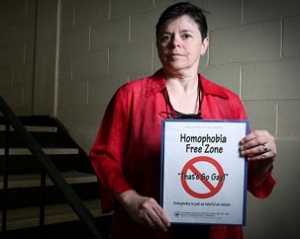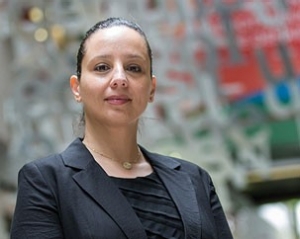Friends can make a world of difference for coping with verbal aggression, according to William M. Bukowski, a Concordia University Research Chair in Psychology (Tier 1) and director of the Centre for Research in Human Development. Students with close friends tend to get over an episode of bullying or victimization more quickly than individuals who feel isolated.
Longstanding research indicates that individuals who are withdrawn and/ or aggressive tend to run a greater risk of being victimized. “People don’t like to hear this because they think you’re blaming the victim, which is not the case,” he emphasizes. “What they also don’t like to hear is that people who are victimized are often victimizing others as well.”
Bukowski’s latest research indicates that children who are picked on but have friends don’t suffer feelings of depression or withdrawal to the same extent. “Given that it’s difficult if not impossible to eliminate all the reasons that youths bully or victimize others, this new research is encouraging in that it shows that we can take real steps to minimize the impact,” Bukowski says.
He’s now looking at other factors affecting those feeling victimized. “Our current study — which has yet to be published — indicates that people who feel victimized often have much higher levels of anxiety, which can make them hypersensitive to an experience that isn’t totally positive, while other individuals will more readily dismiss what happened.”
A few studies indicate that you can implement a very time-consuming set of procedures to reduce bullying, or simply arrange to have a bully and victim sit next to each other in class.
What many people may find even more surprising about the new research is that being excluded — denied access to a group and its resources — has a much greater and lasting negative impact than being victimized. “We are social animals,” Bukowski explains. “Except perhaps for the last 600 years, being excluded meant almost certain death. So it doesn’t surprise me that being excluded would have a larger negative impact than being treated badly.”
Being disliked by some or all is tough, yet being cut off by a group and its resources is often more devastating. “The best predictor of negative outcomes is exclusion,” Bukowski reports. “Someone who is excluded at any particular time — even after you factor in victimization — is going to show higher levels of depression than children who have not been excluded. An excluded child will also show higher levels of lingering distress up to two months later.”
The research further indicates why it is so difficult to pinpoint a single cause of bullying or victimization for most of the tragic cases of youth suicide that capture media attention. “These are always terrible occurrences, no matter what the circumstances,” Bukowski says. “However, it is often difficult to learn from these tragic cases because they are often also excluded from their peers and tend to have very bad family relations.”
While having a network of friends is a powerful ally, just getting students to know each other to some extent can significantly improve circumstances. “A few studies done by my colleagues in the Netherlands indicate that you can implement a very expensive, complicated and time-consuming set of procedures to reduce bullying, or you can simply arrange to have a bully and victim sit next to each other in class,” Bukowski says. “When the bully and victim have to co-exist under a relatively well-monitored situation, they begin to get to see each other differently.”
Bukowski is impressed with how teachers at one Montreal school dedicate substantial time to group activities during the initial weeks of each school year so students can bond to some extent. “This kind o f getting to know each other builds empathy that helps to minimize victimization,” he says.
 William Bukowski, director of the Centre for Research in Human Development, conducts research on youth peer relationships. One of his studies looks at elementary and high-school students’ level of emotional well-being and feelings of victimization and exclusion.
William Bukowski, director of the Centre for Research in Human Development, conducts research on youth peer relationships. One of his studies looks at elementary and high-school students’ level of emotional well-being and feelings of victimization and exclusion.
 Hilary Rose, associate professor in Concordia’s Department of Applied Human Sciences, is involved in a Canadian institutes of health research-funded project that is surveying 146 Canadian school districts to see how they’re dealing with issues involving homophobia.
Hilary Rose, associate professor in Concordia’s Department of Applied Human Sciences, is involved in a Canadian institutes of health research-funded project that is surveying 146 Canadian school districts to see how they’re dealing with issues involving homophobia.
 Department of Applied Human Science associate professor Gilbert Émond worries about youth at schools where homophobic acts go unpunished. “They have their brand-name clothing or shoes taken away from them. In some cases, these items are burnt.”
Department of Applied Human Science associate professor Gilbert Émond worries about youth at schools where homophobic acts go unpunished. “They have their brand-name clothing or shoes taken away from them. In some cases, these items are burnt.”
 PhD candidate Jihan Rabah is working on a documentary that will reveal the experiences of individuals marginalized on social media.
PhD candidate Jihan Rabah is working on a documentary that will reveal the experiences of individuals marginalized on social media.